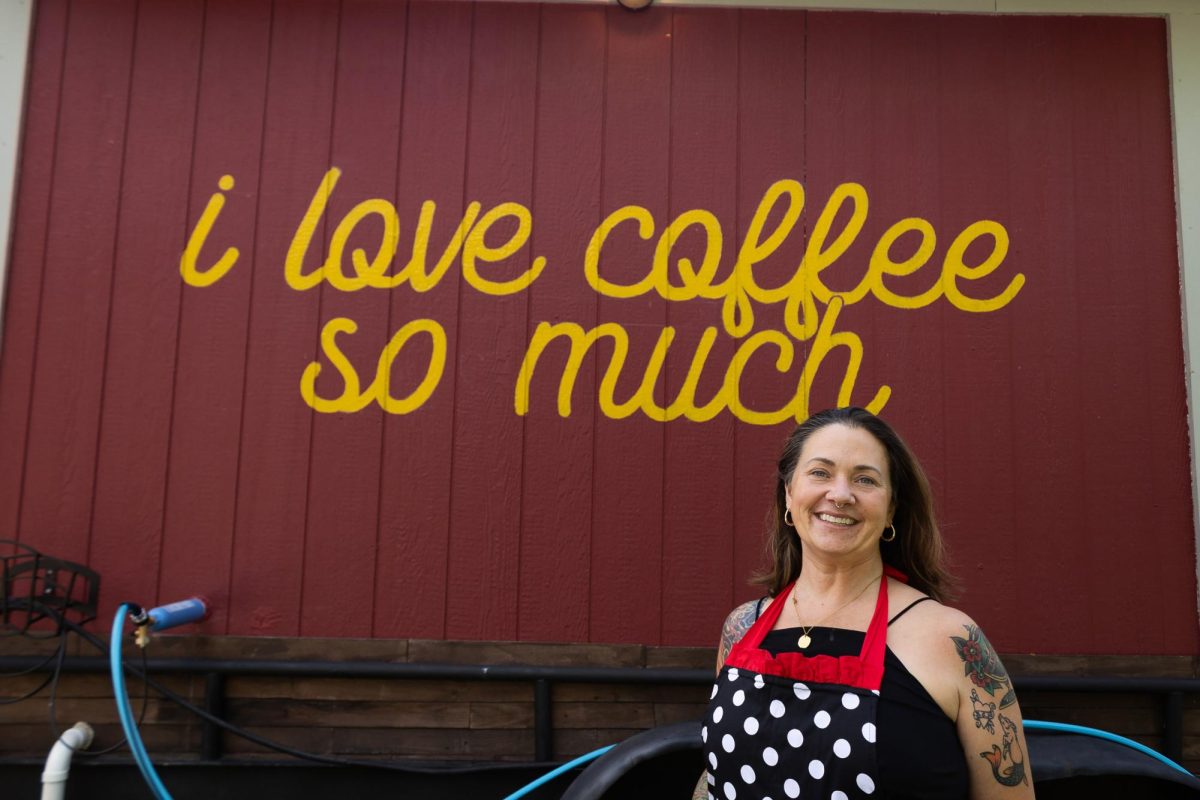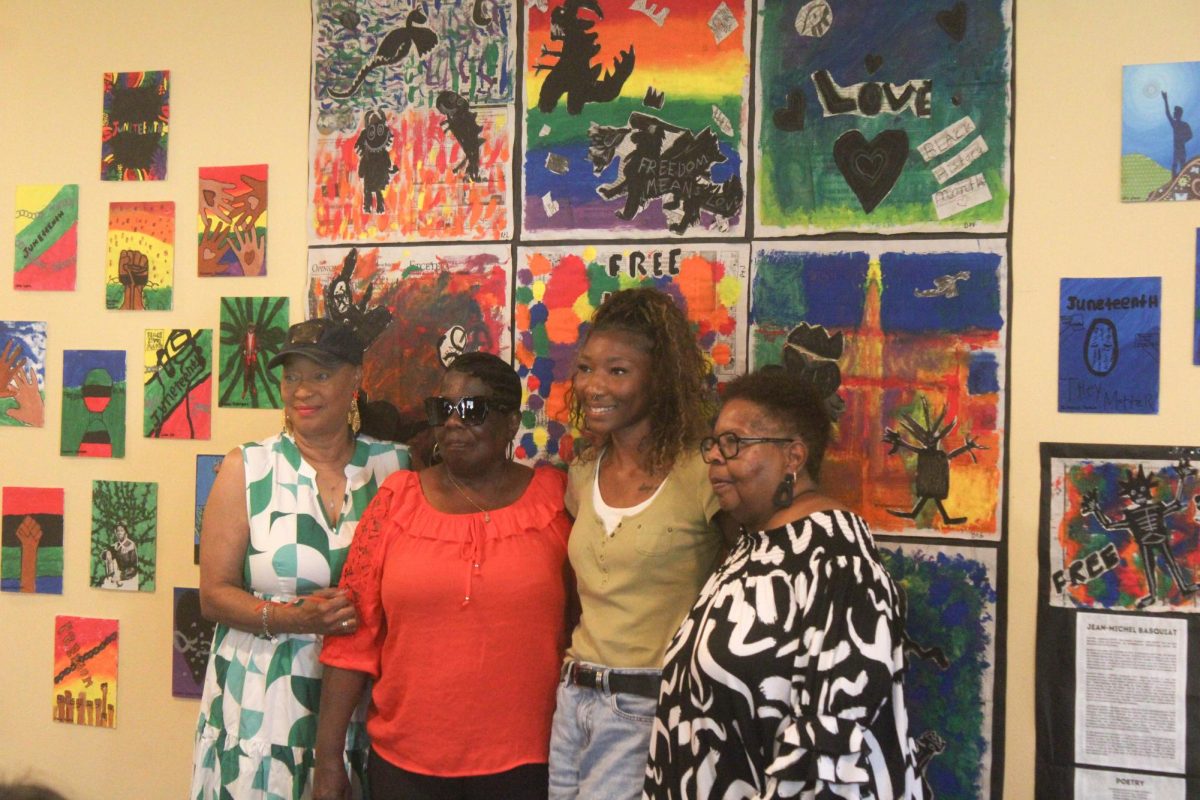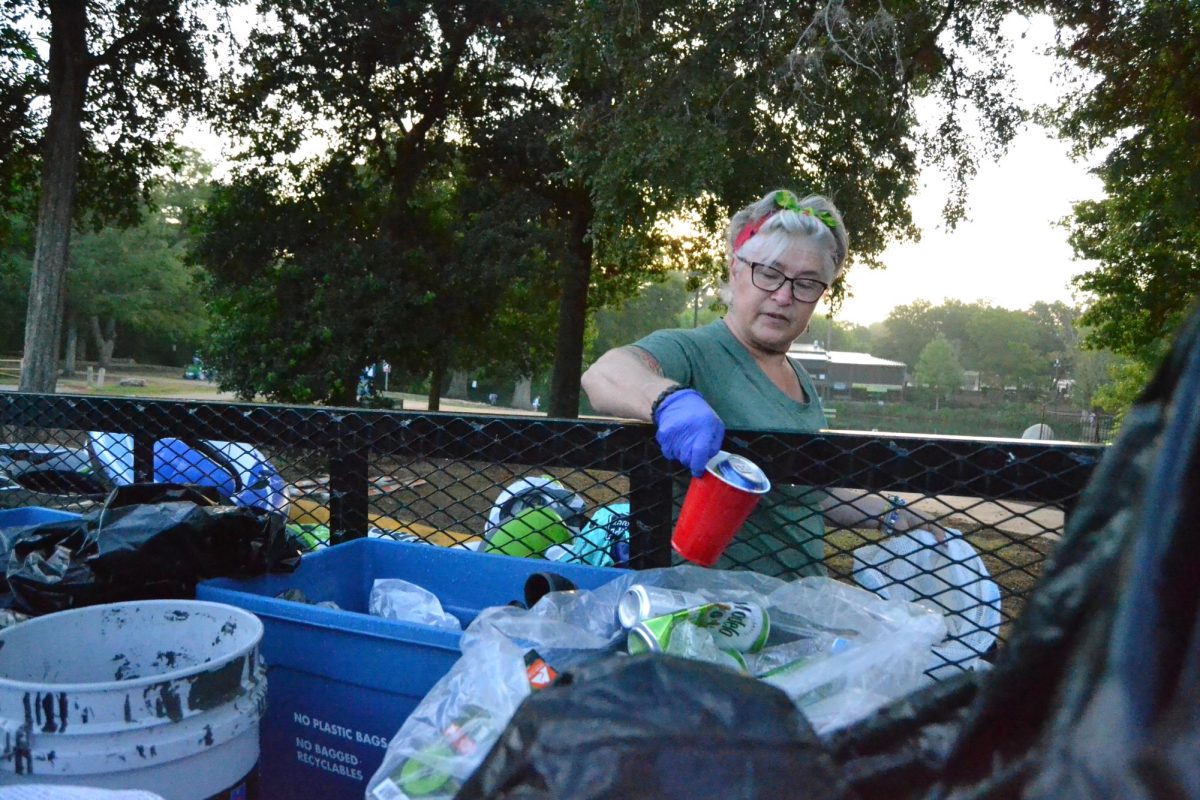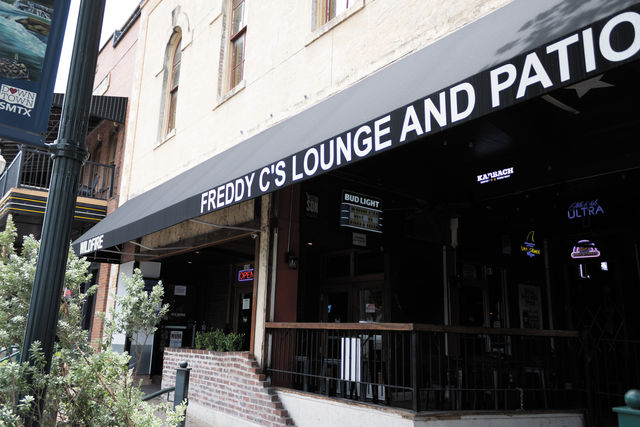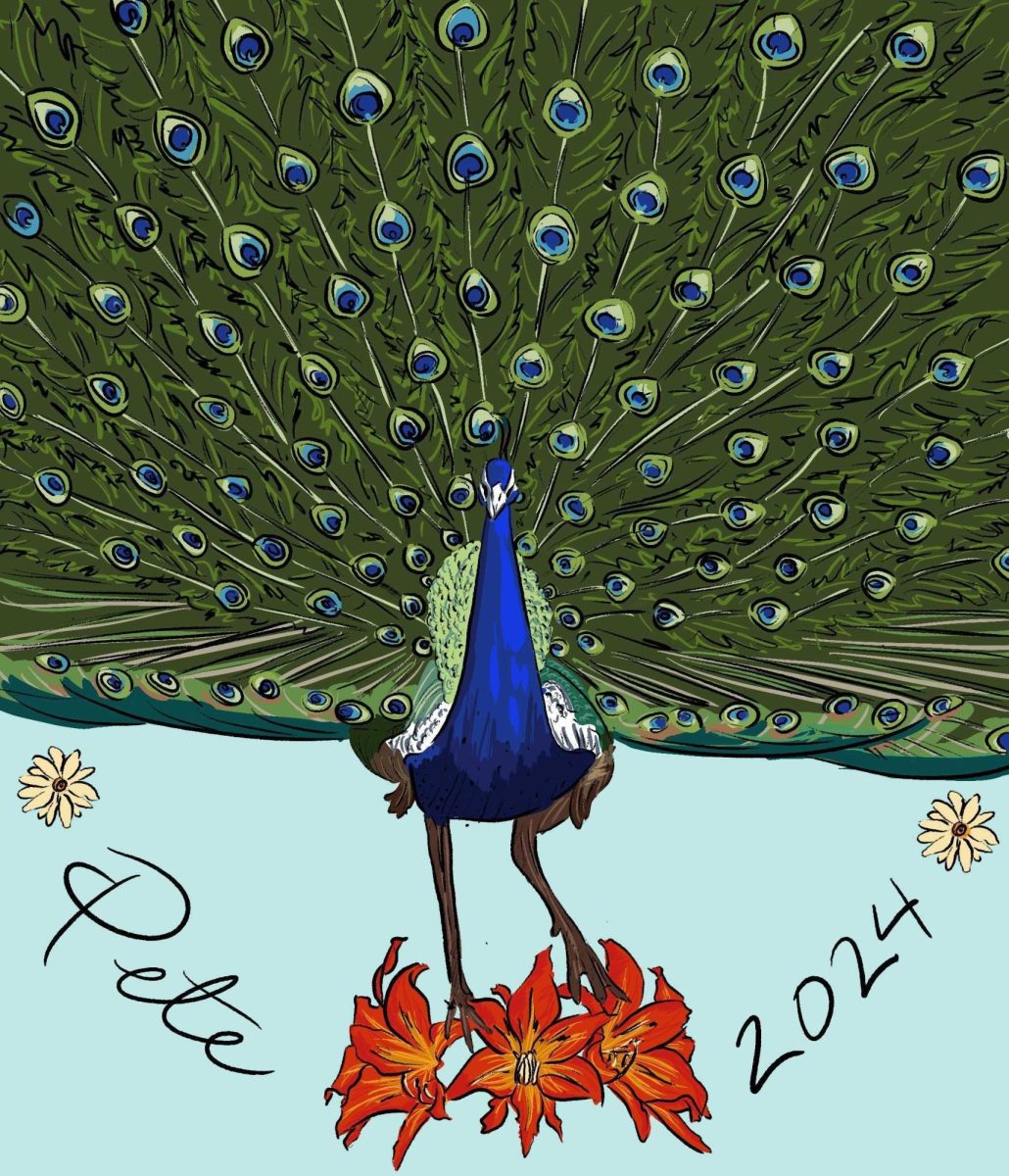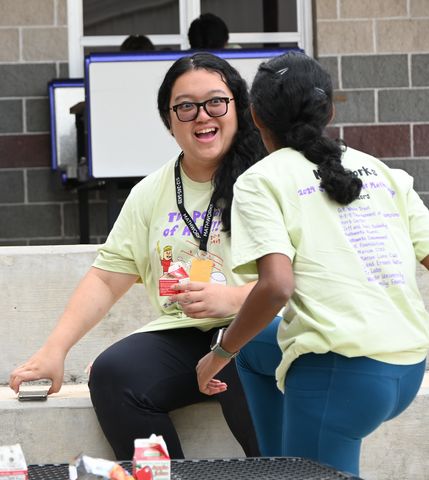Martin Luther King Jr. Day became a federal holiday in 1983, 15 years after the civil rights activist’s assassination. The holiday wasn’t officially celebrated nationwide until three years later in 1986. Since then, those who remember King’s legacy have come together each holiday to celebrate and acknowledge the work that has been accomplished, as well as the work that still needs to be done in order for everyone to be treated equally.
The Dunbar Heritage Association (DHA) hosted its 21st MLK March and Celebration on Jan. 16, as well as an MLK Kids event held at the San Marcos Public Library on Jan. 14. Jonafa Banbury, secretary for the DHA, was excited for the community to celebrate.
“It’s that one time of year where so many people come together for the very same reason,” Banbury said. “We hope that they learn a little bit of history, as well as remember and commemorate Martin Luther King Jr.’s life.”
The march began with a wreath-laying ceremony at the Crossroads Memorial on the corner of LBJ and MLK Drives. The march began at 9:30 a.m. at the memorial and continued down MLK Drive. Alex Banbury Jr., president of the DHA, noted that the route goes through The Dunbar Historic District, a historically Black neighborhood in San Marcos.
“Given this opportunity to walk through the neighborhood lets others know that there is a historically Black neighborhood here in San Marcos, filled with a lot of history,” Banbury Jr. said.
The Dunbar Historic District holds memories of days past but is something DHA doesn’t want the public to forget. Harvey E. Miller, the founder of the DHA, moved to San Marcos in 1966. Years later, Miller helped turn the old Dunbar school, which was closed due to integration, into the Dunbar Park and Dunbar Recreation Center for the community. He also organized Juneteenth celebrations. He organized the DHA in 1999.
Miller died in 2020, but the legacy of his community work lives on. Some people may see MLK Day as a day off from work or a three-day weekend, Jonafa Banbury said, but everyone should be reminded of its historical significance.
“This celebration of MLK Day is an opportunity to celebrate as well as start thinking of the history because the civil rights movement wasn’t very long ago,” Banbury said. “There are things happening all the time, injustices that we still see today”
After the walk down MLK Drive, the group made their way to the Hays County Historic Courthouse where a celebration was held. This year’s theme was Black Resistance and featured guest speakers including Buda city council member LaVonia Horne-Williams and Texas State President Kelly Damphousse. Creole food from Lil’ Lafayette 337, sausage wraps from the San Marcos Police Department and snacks from Texas State’s Center for Diversity and Gender Studies were freely served at the Dunbar Recreation Center after the program and keynote address.
Texas State’s Division of Inclusive Excellence kicked off its two-part event, the 39th annual Commemoration Celebration, with a poster-making workshop on Jan. 16 in the LBJ Student Center (LBJSC) Unity Lounge. The posters will be used for the Solidarity March from the LBJ Statue to the LBJSC Grand Ballroom at 5 p.m. on Jan. 17.
Evan Bookman, a political science master’s and graduate assistant within the Division of Inclusive Excellence, said that Texas State alumnus and former president Lyndon B. Johnson and Martin Luther King Jr. worked to enact the Civil Rights Acts in the 1960s.
King pressured Johnson to sign into law the policies that his predecessor, John F. Kennedy, had been working toward. From the ending of legal segregation to prohibiting racial discrimination when it comes to voting, these laws changed the U.S. and Johnson’s presidency.
“MLK and a group of Black leaders and organizations were responsible for basically pestering Lyndon B. Johnson to sign legislation that gave us the 1964 Civil Rights Act, 1965 Voting Rights Act and the 1968 Civil Rights Act which dealt with fair housing,” Bookman said.
A program in the ballroom will follow the march and feature Texas State students giving remarks, performing slam poetry and singing. Guest speaker Leonard N. Moore, author and professor, will address attendees. A reception with food and refreshments will follow.
King’s famous “I Have a Dream” speech will turn 60 years old this August. Bookman said King was just one piece of a bigger picture and that future generations are the ones to keep fighting for that dream to become closer in reach.
“It’s important for us to celebrate MLK on this day and other individuals that continue to engage in a collective struggle to advance human rights,” Bookman said. “You’re on the right side of history if you’re celebrating and honoring them.”
To learn more about the Dunbar Heritage Association and future events, visit https://dhasmtx.com. To learn more about Texas State’s Martin Luther King Jr. Day event, visit https://inclusion.txst.edu/students/programs/cultural-celebrations/mlk.html.
San Marcos and Texas State celebrate Martin Luther King Jr. Day
January 16, 2023
Donate to The University Star
Your donation will support the student journalists of Texas State University. Your contribution will allow us to purchase equipment and cover our annual website hosting costs.











